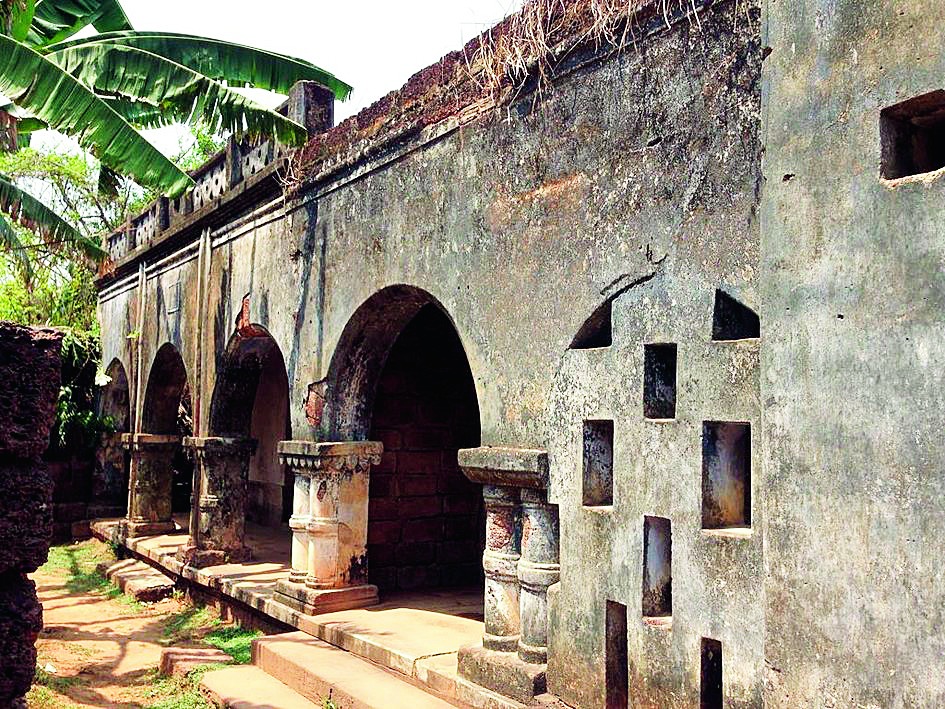
Bhubaneswar, March 31: The spotlight has moved away from the family of the Tapang dalbehera (chieftain) Madhab Chandra Routray, who led the fight against the Raj. His descendants now lead a life away from the glare of publicity.
The irony would be underscored once again as the state celebrates Utkal Divas tomorrow and commemorates the 200 years of Paika vidroh (rebellion), which historians claim to be the first armed revolt against the British.
Dalbehera Bhubananada Routray, the legendary chieftain's great grandson (fifth generation), who is ill and spends most of his time at Tapang, about 35km from here, laments that his family's contribution to the freedom movement has failed to receive due attention. "We had fought against the British for almost 109 years before Odisha was born."
Routray, 66, recalls how his great grandfather had led a revolt leading to a direct armed fight against the Raj in 1827, nearly 10 years after the Paika rebellion started. "After offering a brave fight for seven days in the open battlefield, he had to resort to guerrilla warfare," he recalls.
As history says, dalbehera suffered defeat because one of his lieutenants had turned traitor and helped the British forces capture his arsenal. The warrior surrendered because he wanted the money declared on his head to be awarded to a needy fisher woman and her family.
Routray recalls: "When we go back to history, a sense of pride grips me. This happens only when occasionally people from media come here to meet me and try to throw about the contribution of dalbehara and Paikas, who fought against the Raj. Even when the jatra parties invite me to watch shows based on dalbehera, I get moved and feel proud."
However, Routray has nothing to show the world except some traditional weapons such as swords. They are wrapped in clothes and have been kept in a corner of his house. "We open them up for public viewing during Dussehra. At that time, we worship the weapons recalling our ancestors' fight against the Britishers," he said.
The building, where Madhab Chandra used to live, is now in a shambles and may collapse at any moment. Many bushes and creepers have come up inside the building with peeling plaster.
"We had to shift to a small house as we have failed to maintain the historically important structure. We have no objection if the government takes over and converts it into a museum," he quips.
The chaupadhi, where people used to sit and decide various cases, still exists. "We have renovated the chaupadhi by replacing the kutcha roof with asbestos. We, the villagers, used to sit on the platform and settle any disputes that come up at the village," Routray says.
He is aware of the fact that the Centre and the state government are commemorating the bicentenary year of the Paika rebellion. "I will be happy if the people of the country recognise that it is dalbehera and the Paikas, who had led the fight against the Britishers much before the Sepoy Mutiny in 1857," he said.
Though he is aware of the fact that the government has set up a gallery at the State Museum in Bhubaneswar on the Paika rebellion, he said: "I have donated all the articles used by my ancestors to the government with a request to build a statue of him in Bhubaneswar and name roads after the great Paikas. But, nothing has so far happened. It pains me."
"Had not the Centre announced to commemorate the bicentenary of the Paika rebellion, the state perhaps would not have given so much attention to this cause. We are thankful to both the governments as an attempt has been made to remember the sacrifice of the great martyrs," he says while mentioning special thanks to the Narendra Modi government.
Another irony is that the dalbeheras and Paikas, who used to hide in dense forest and hills in the nearby areas, are under threat and have been the victims of ongoing projects such as road building in Bhubaneswar. The government has leased out these hills for mining purposes. "People are engaging in indiscriminate mining and extracting stones from quarries. Even two to three hills have become flat due to extraction of stones," said Ramchandra Pahada Singh of Ganagapada village near Tapang.










